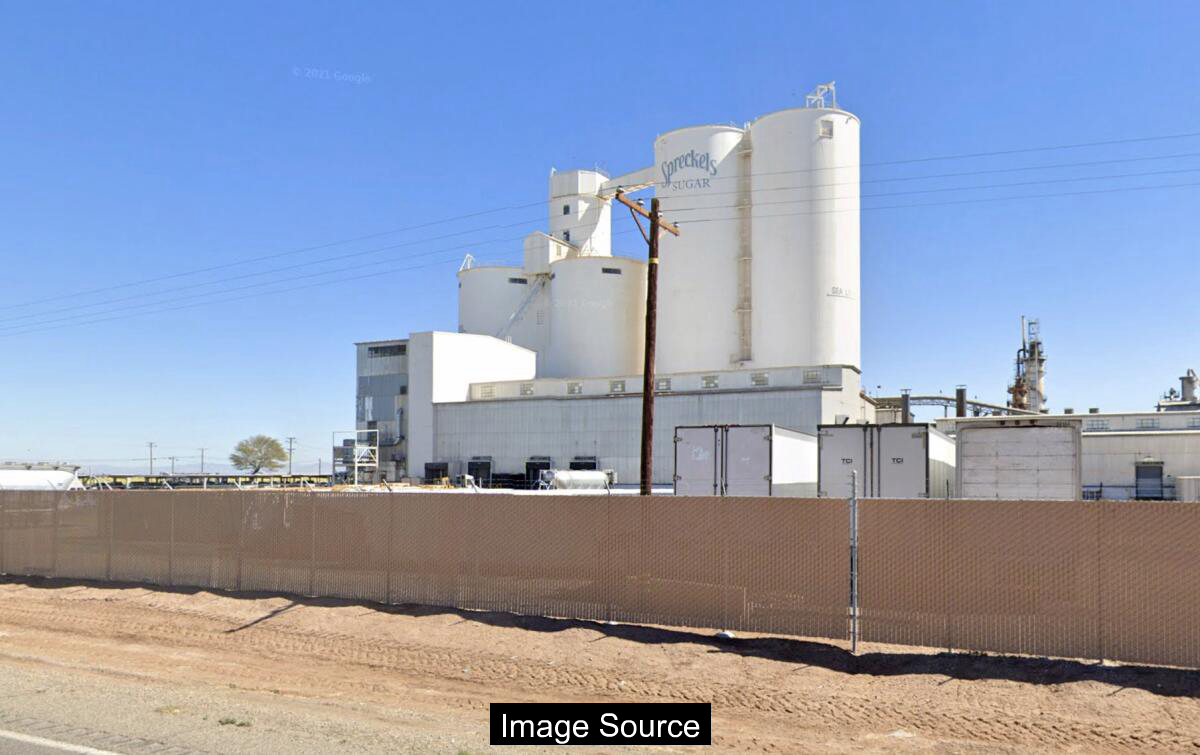The closure of the last sugar beet processing facility in California marks the end of a significant agricultural chapter for the state’s Central Valley. After decades of sugar beet cultivation and production, economic pressures and changing agricultural dynamics have led to the shutdown of the final processing plant, signaling a notable shift in the region’s farming landscape.

The End of California Sugar Beet Production
The Imperial Valley’s agricultural landscape is experiencing a significant transformation with the closure of the last sugar beet processing factory in California. The Southern Minnesota Beet Sugar Cooperative has initiated the decommissioning of its Spreckles Sugar Co. facility in Brawley, marking the end of a 78-year industrial legacy. This shutdown represents more than just a factory closure; it signals a potential complete halt to sugar beet farming in the state.
Sugar beets have been a critical agricultural product in the region, thriving in the Imperial Valley’s nutrient-rich soil and benefiting from Colorado River water. These root vegetables are responsible for producing more than half the sugar in the United States, alongside sugar cane. The local ecosystem and agricultural infrastructure have long supported this specialized crop, making the impending closure particularly impactful.
The decision to close the factory stems from complex economic challenges facing the sugar industry. Rising operational costs, declining sugar prices, and post-pandemic economic pressures have created an increasingly difficult business environment. The cooperative will redirect its resources to a more profitable plant in Renville, Minnesota, effectively abandoning its California operations.
Economic Impact on Imperial County
The factory’s closure will deliver a substantial economic blow to Imperial County, an area already struggling with high unemployment rates. Local officials estimate the shutdown will eliminate approximately 700 jobs and eradicate a $243-million industry. Agriculture serves as the second-largest job creator in the region, making this loss particularly devastating for the local workforce.
The broader context of industrial agricultural decline is evident in national statistics. Since 2000, 28 sugar beet and sugar cane factories have closed nationwide, reducing the total number of operational facilities from 71 to just 43. This trend reflects broader challenges in agricultural manufacturing and regional economic sustainability.
Strict federal regulations further compound the economic challenge. These regulations prevent the Imperial Valley from processing sugar beets in alternative facilities, effectively ensuring that the local sugar beet farming industry will completely cease operations once the Brawley factory closes.
Understanding the Sugar Industry Challenges
The sugar industry has been navigating a complex macroeconomic landscape in recent years. Fluctuating global commodity prices, increased production costs, and changing consumer preferences have created significant operational challenges for manufacturers. The Spreckles Sugar Co. closure exemplifies these broader industrial pressures.
Paul Fry, the cooperative’s chief executive, characterized the decision as difficult but necessary. He emphasized that the economic challenges confronting the sugar industry have been progressively building, making continued operation of the Brawley facility increasingly unsustainable. Despite substantial investments, the facility could not overcome mounting financial obstacles.
The company’s history adds context to this decision. Originally incorporated in San Francisco in 1896, Spreckles Sugar Co. has a long-standing tradition in California’s agricultural sector. The cooperative acquired the Brawley factory in 2005, but economic realities have now forced its closure.
FAQ: Sugar Beet Production Insights
What makes sugar beets unique in agricultural production? Sugar beets are root vegetables with high sucrose content, making them a primary source of sugar production in the United States. Unlike sugar cane, they can be grown in diverse climates and offer an alternative sugar extraction method.
How will this closure impact future agricultural practices in the Imperial Valley? The factory shutdown will likely lead to crop diversification, with farmers potentially transitioning to alternative agricultural products that are more economically viable in the current market. This shift represents a significant transformation in the region’s farming ecosystem.
Strategic Pointers
The Spreckles Sugar Co. factory closure represents more than an isolated industrial event. It reflects broader trends of agricultural manufacturing challenges, regional economic vulnerabilities, and the ongoing transformation of industrial agriculture in the United States.
For Imperial County, the closure necessitates strategic economic diversification. Local leaders and economic development professionals must explore alternative industries, workforce retraining programs, and innovative agricultural approaches to mitigate job losses and economic disruption.
The sugar beet industry’s contraction underscores the importance of adaptability in modern agricultural and manufacturing sectors. Businesses must continuously evaluate operational efficiency, technological innovation, and market dynamics to remain competitive in an increasingly complex economic landscape.
※ This article summarizes publicly available reporting and is provided for general information only. It is not legal, medical, or investment advice. Please consult a qualified professional for decisions.
Source: latimes.com